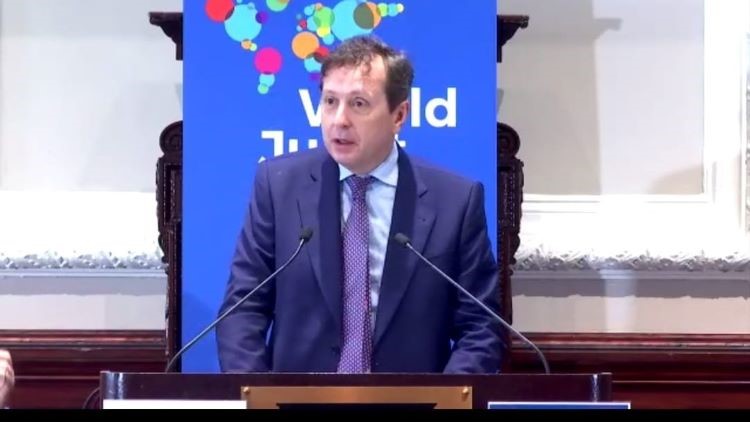The Diplomat
The Ibero-American Ambassador of Culture, Carlinhos Brown, celebrated last Wednesday, Ibero-American Day, the cultural, linguistic and geographical diversity that unites the 22 countries of the region, during the “Ibero-America Dialogue”, a discussion and musical meeting organised by the Ibero-American General Secretariat, in collaboration with Casa de América and AECID.
The aim of the celebration was to highlight the historical and cultural affinities that make up the Ibero-American Community, advocating unity and development based on dialogue, cooperation and solidarity.
The Brazilian artist spoke with the Peruvian singer, poet and musicologist Mariella Köhn and the Spanish singer Soledad Giménez (Presuntos Implicados) about music and art and the importance of cooperation to promote culture, knowledge and social cohesion, the keys to the work of the Secretariat to strengthen the rights of the more than 600 million Ibero-Americans.
Brown, who was named Ibero-American Ambassador of Culture in 2018 for representing the values of solidarity, plurality and respect for the diversity of Ibero-America, recalled the transformative process that music had both in his life and in the favela of Candeal, in Salvador (Bahia), where he grew up and founded the Pracatum Association, which offers education and culture to foster the socio-economic transformation of the community.
“Culture cannot be a privilege of any ethnic group or social class, it belongs to everyone,” said Brown, who brought the rhythm of his percussion to the stage alongside Mariella Köhn and Soledad Giménez.
The event was opened by Casa de América’s Director of Programming, Luis Prados, and by the Ibero-American Secretary General, Andrés Allamand, who underlined how the artists on stage represent the essence of Ibero-American culture.
“A reality that is America, Europe and Africa; that is heard in Spanish, Portuguese and in the languages of native peoples; a reality and identity that is tradition, avant-garde and innovation. It is also a culture that is in the voice of women and men committed to building a better society based on what unites and identifies us,” he added.
Prados, for his part, stressed that Iberoamerica Day is a celebration to highlight and share the values that define those of us who are part of the region: “Iberoamerica is alive and we will continue to be committed to its development and growth, in a space that makes us so differently equal, and where the magic of Iberoamerica takes place”.
Iberoamerica Future. Supercomputing and ethics
In addition to the activity with Carlinhos Brown, Casa América also hosted the “Iberoamerica Futuro” (Iberoamerica’s Future) conversation, an event that is intended to be institutionalised, starting this year, every 19 July, Iberoamerica Day, to create a space for reflection on cutting-edge topics in science written and conceived from the region.
On this first occasion, the theme was “Supercomputing and ethics”, with the participation of Mateo Valero, director of the Barcelona Supercomputing Center, and Eva Villaver, astrophysicist and director of the Space and Society office of the Spanish Space Agency.
The two discussed supercomputing and the major challenges facing the scientific community, such as the climate emergency and hunger, as well as ethics in science.
In November 2019, the foreign ministers of the 22 countries of the region approved the celebration of Ibero-America Day every 19 July, the date on which the first declaration of heads of state of the region was signed in Guadalajara (Mexico) in 1991.
Therefore, with this celebration, since 2020,” says a SEGIB note, “we value the set of historical and cultural affinities that make up the rich and diverse Ibero-American Community and we advocate for unity and development based on dialogue, cooperation and solidarity.
SEGIB has been actively participating in the commemoration of this day since 2020, mainly emphasising the values that unite the 22 countries of the region, the joint work carried out in favour of the progress of Ibero-America and underlining the importance of horizontal cooperation and the agreements signed between countries as valid instruments to achieve fairer and more sustainable societies.







